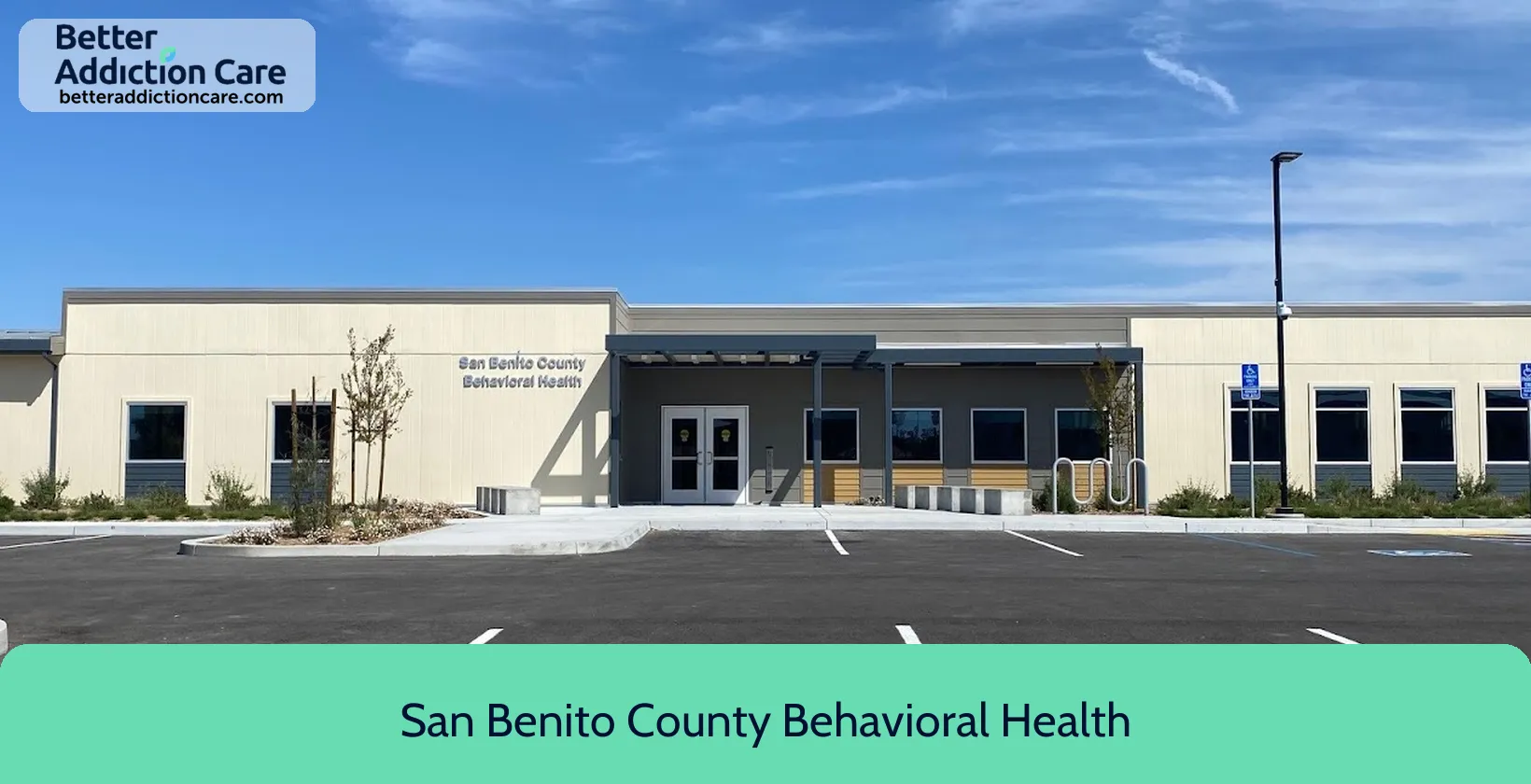San Benito County Behavioral Health
Overview
San Benito County Behavioral Health is an substance abuse treatment center that provides outpatient treatment for men and women from 18+ years of age. As part of their special programs, San Benito County Behavioral Health treats children/adolescents with serious emotional disturbance (sed) and clients who have experienced trauma. To help patients achieve sobriety, San Benito County Behavioral Health provides intake assessments. Afterward, patients receive family counseling, individual psychotherapy, and cognitive behavioral therapy during treatment. San Benito County Behavioral Health is located in Hollister, California, providing treatment for people in San Benito County, accepting county or local government funds, community mental health block grants, and medicaid.
San Benito County Behavioral Health at a Glance
Payment Options
- County or local government funds
- Community Mental Health Block Grants
- Medicaid
- Other State funds
- Private health insurance
Assessments
- Comprehensive mental health assessment
- Comprehensive substance use assessment
Age Groups
- Adults
- Children/adolescents
- Young adults
Operation
- State government
Highlights About San Benito County Behavioral Health
6.71/10
With an overall rating of 6.71/10, this facility has following balanced range of services. Alcohol Rehabilitation: 8.00/10, Drug Rehab and Detox: 6.00/10, Insurance and Payments: 6.00/10, Treatment Options: 6.85/10.-
Alcohol Rehabilitation 8.00
-
Treatment Options 6.85
-
Drug Rehab and Detox 6.00
-
Insurance and Payments 6.00
Treatment At San Benito County Behavioral Health
Treatment Conditions
- Mental health treatment
- Substance use treatment
- Co-occurring Disorders
Care Levels
- Outpatient
Treatment Modalities
- Family counseling
- Individual psychotherapy
- Cognitive Behavioral Therapy
- Group counseling
- Experiential Therapy
Ancillary Services
Languages
- Sign language services for the deaf and hard of hearing
- Spanish
Special Programs
- Children/adolescents with serious emotional disturbance (SED)
- Clients who have experienced trauma
Contact Information
Read our Most Recent Article About Drug Addiction
DISCLAIMER: The facility name, logo and brand are the property and registered trademarks of San Benito County Behavioral Health, and are being used for identification and informational purposes only. Use of these names, logos and brands shall not imply endorsement. BetterAddictionCare.com is not affiliated with or sponsored by San Benito County Behavioral Health.









